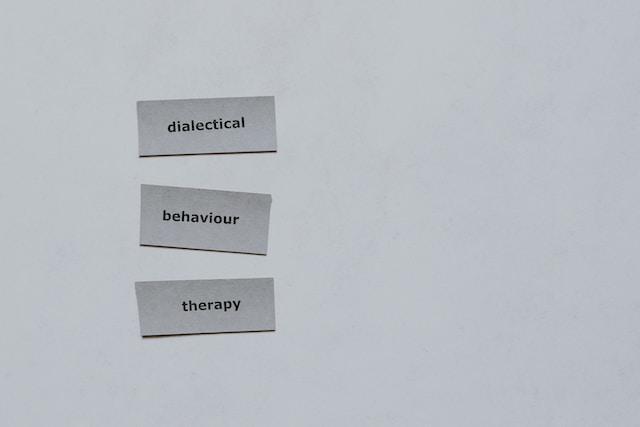Taking Advantage Of the Power of Dialectical Behavior Therapy (DBT) Providers for Sustainable Psychological Balance and Improved Relationships
In a world where emotional well-being and maintaining healthy relationships are essential elements of a satisfying life, the usage of Dialectical Behavior Therapy (DBT) services has emerged as a sign of hope for many individuals. The evidence-based and structured approach of DBT offers a path in the direction of lasting psychological balance and enhanced interactions with others.
Understanding the Core Concepts of DBT
Dialectical Behavior Modification (DBT) is established upon a set of core principles that underpin its restorative method to promoting emotional equilibrium and emotional well-being. One of the fundamental principles of DBT is dialectics, which highlights the synthesis of relatively opposite ideas to reach a more well balanced viewpoint. This includes acknowledging and accepting the oppositions and tensions within oneself, resulting in a greater feeling of harmony and understanding. Mindfulness is another core concept of DBT, concentrating on being fully existing in the moment without judgment. By growing mindfulness, people can develop an enhanced understanding of their actions, ideas, and emotions, permitting better self-regulation and emotional control.
Validation is likewise integral to DBT, highlighting the importance of accepting and recognizing one's experiences and emotions as legitimate. Via validation, people can learn to browse their feelings with empathy and understanding, cultivating self-acceptance and emotional development. Lastly, behaviorism plays an essential function in DBT, stressing the adjustment of maladaptive habits via reinforcement and skill-building. By integrating these core concepts right into treatment, DBT offers a detailed and reliable technique to advertising psychological health and psychological resilience. DBT London.
Establishing Emotional Policy Skills
Emotional regulation abilities are necessary elements of Dialectical Behavior modification (DBT) that make it possible for individuals to efficiently manage their feelings and navigate challenging scenarios with durability. These skills incorporate the capability to identify and recognize one's feelings, tolerate distress, manage intense sensations, and act according to personal worths even in the face of psychological turmoil. Creating emotional regulation abilities includes finding out mindfulness methods to stay existing in the moment, recognizing the triggers that result in psychological dysregulation, and executing coping strategies to regulate emotional actions.

Via DBT solutions, people can grow a much deeper awareness of their emotions, identify patterns of habits that contribute to psychological distress, and acquire useful devices to manage their feelings constructively. By sharpening these abilities, individuals can boost their psychological intelligence, improve impulse control, and foster healthier partnerships. Ultimately, grasping emotional regulation brings about better psychological stability, enhanced confidence, and an increased capability to browse life's obstacles with calmness and flexibility.
Enhancing Interpersonal Performance

One key part of improving social effectiveness in DBT is finding out to identify and manage feelings in social communications (DBT London). By enhancing emotional understanding, individuals can reply to others in an extra compassionate and understanding means. In addition, DBT emphasizes the relevance of practicing mindfulness in interpersonal connections, encouraging people to be present in their interactions and fully involve with others

Exercising Mindfulness Techniques
Creating a consistent mindfulness practice is crucial for people undertaking Dialectical Actions Therapy (DBT) to cultivate psychological guideline and improve their interpersonal efficiency. Mindfulness techniques, a core element of DBT, entail taking notice of today moment without judgment. Via mindfulness, individuals can come to be more conscious of their ideas, feelings, and bodily feelings, enabling them to react to scenarios with higher quality and control.

Another essential element of practicing mindfulness in DBT is the concept of radical acceptance. Radical acceptance involves completely accepting fact as it is, even when it is painful or difficult. By approving the existing moment without judgment, individuals can decrease their suffering and make space for favorable adjustment.
Applying DBT Methods in Daily Life
Building upon the structure of mindfulness techniques such as reflection and radical approval, people can incorporate DBT methods right into their daily lives to foster psychological balance and improve their interpersonal abilities. In addition, interpersonal efficiency abilities showed in DBT can help individuals connect their needs assertively, set limits, and keep healthy and balanced relationships. By constantly applying these DBT techniques in everyday life, people can experience lasting emotional balance and enhance their general health.
Verdict
Finally, utilizing the power of Dialectical Behavior Treatment (DBT) services can bring about lasting psychological equilibrium and boosted relationships. DBT London. By understanding the core principles of DBT, creating psychological law skills, boosting interpersonal effectiveness, exercising mindfulness techniques, and using DBT strategies in every day life, individuals can experience substantial improvements in their general wellness and relationships. The alternative technique of DBT offers important tools and techniques for managing feelings and building healthier connections with others
Emotional regulation abilities Your Domain Name are important components of Dialectical Behavior Therapy (DBT) that enable individuals to effectively handle their feelings and navigate challenging situations with resilience.Via DBT solutions, individuals can cultivate a much deeper understanding of their emotions, acknowledge patterns of behavior that add to psychological distress, and acquire practical devices to control their feelings constructively.Developing a regular mindfulness method is vital for individuals undertaking Dialectical Habits Therapy (DBT) to cultivate psychological policy and enhance their social efficiency.Structure upon the structure of mindfulness methods such as reflection and extreme acceptance, people can integrate DBT approaches into their day-to-day lives to promote emotional equilibrium and enhance their social skills. By recognizing the core click over here now concepts of DBT, establishing psychological policy abilities, improving social effectiveness, exercising mindfulness methods, and using see post DBT techniques in day-to-day life, individuals can experience substantial improvements in their general health and connections.
Comments on “Experience Development and Revival with DBT London's Knowledge”